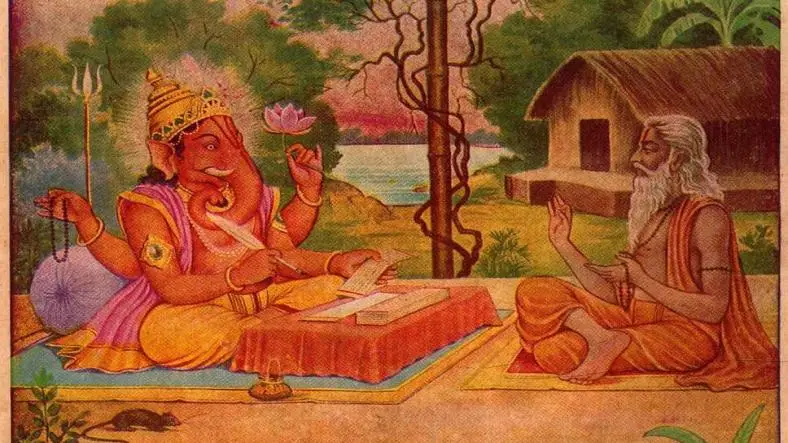The Vedas are the oldest sacred texts in Hinduism and have greatly influenced Hindu philosophy. Written in ancient Sanskrit, these texts cover a variety of ideas about philosophy, spirituality and rituals that shape Hindu thought and practice.
This article looks at how the Vedas contribute to Hindu philosophy by examining their teachings, their impact on later philosophical schools and their lasting importance in Hindu thought.
Key Philosophical Concepts
- Dharma (Cosmic Law and Duty)
- Dharma means the moral and ethical duties that keep the universe in order and guide human behavior.
- The Vedas explain dharma through hymns and rituals, highlighting its importance in maintaining cosmic balance (rta) and guiding people's actions. For example, the Rigveda discusses rta as the principle of order and justice in the universe.
- Rta (Cosmic Order)
- Rta represents the natural and moral order of the universe, ensuring harmony and balance.
- The Vedas show rta as a fundamental principle that governs both the cosmos and human actions. Rituals and sacrifices are performed to align with this order, ensuring that natural and social systems function properly.
- Brahman (Ultimate Reality)
- Brahman is the ultimate reality that exists beyond the physical world, described as the source of everything.
- Although the full concept of Brahman is more developed in the Upanishads, the Vedas lay the groundwork for it. The hymns often refer to a divine principle that is central to existence.
- Atman (Self or Soul)
- Atman refers to the individual soul or self, considered eternal and divine.
- The Vedas introduce the idea of atman, which is further explored in the Upanishads. The belief in atman as an eternal reality is key in Hindu philosophy.
Influence on Later Hindu Philosophical Schools
- Vedanta
- Vedanta is one of the six classical schools of Indian philosophy that builds on Vedic ideas, especially from the Upanishads.
- The concept of Brahman from the Vedas is central to Vedanta, which examines the relationship between atman and Brahman. Important texts like the Brahma Sutras and commentaries by thinkers like Shankaracharya elaborate on these ideas.
- Samkhya and Yoga
- Samkhya and Yoga are other significant schools that also draw from Vedic concepts.
- Samkhya focuses on the difference between purusha (consciousness) and prakriti (matter), reflecting Vedic ideas about the self and the universe. Yoga, linked to Patanjali’s Yoga Sutras, incorporates Vedic principles of meditation and aims for the union of the individual soul with Brahman.
- Mimamsa
- Mimamsa emphasizes ritual practice and the interpretation of Vedic texts.
- Scholars in Mimamsa use Vedic texts to discuss rituals and their importance, asserting that proper performance aligns human actions with cosmic order.
- Nyaya
- Nyaya is known for its logical and epistemological studies.
- The Nyaya school uses Vedic concepts in its logical investigations, exploring how rituals and philosophical knowledge lead to understanding truth.
Lasting Importance
- Ritual and Worship
- The Vedas are still central to Hindu rituals and worship. Their hymns are vital for various ceremonies, from daily practices to large sacrifices.
- The ongoing recitation of Vedic rituals shows their importance in Hindu devotion and cultural heritage.
- Philosophical Reflection
- The philosophical ideas in the Vedas continue to shape modern Hindu thought. Concepts like dharma, karma and moksha (liberation) remain central to contemporary practices.
- The teachings of the Vedas serve as a foundation for continued exploration and interpretation in Hindu philosophy, affecting both academic and everyday understanding.
- Cultural and Spiritual Legacy
- The Vedas help shape the cultural and spiritual identity of Hinduism, offering wisdom and guidance.
- Their influence goes beyond religion to affect cultural values, ethical norms and spiritual goals within Hindu communities.
The Vedas are crucial in Hindu philosophy, providing deep insights into cosmic order, ethical behavior and the nature of reality. Their teachings have shaped various philosophical schools and continue to influence modern thought and practice. As foundational texts, the Vedas create a rich array of ideas that reflect the complexity of early Hinduism and its lasting impact on philosophy and culture.
Thanks for reading the article, for more spiritual related articles read our peoples blog articles.















